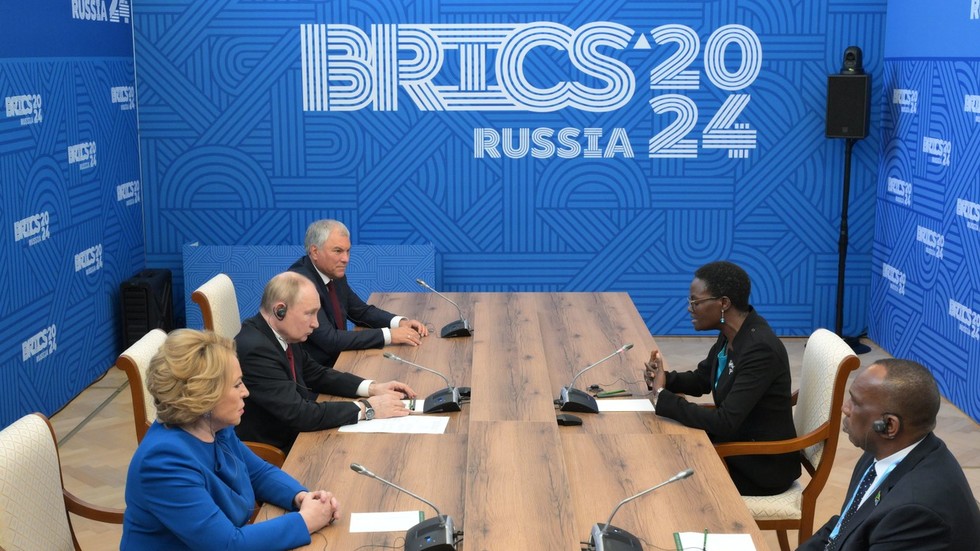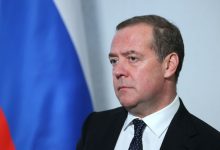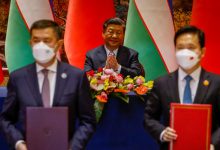
The role of legislatures is more crucial than ever in overcoming international challenges, the Russian president has said
President of Russia Vladimir Putin, second right, in a meeting with Tulia Ackson, President of the Inter-Parliamentary Union, Speaker of the National Assembly of Tanzania, on the sidelines of the 10th BRICS Parliamentary Forum. © Alexei Danichev/Photohost agency brics-russia2024.ru/Sputnik
Russian President Vladimir Putin has stressed the importance of global inter-parliamentary cooperation in helping to overcome international challenges.
The Russian leader made the comments at a meeting with Tulia Akson, president of the Inter-Parliamentary Union (IPU) and speaker of the National Assembly of Tanzania, on the sidelines of the BRICS Parliamentary Forum in St. Petersburg on Thursday.
The IPU aims to coordinate the efforts of parliaments worldwide. Established in 1889, it holds observer status at the UN and includes 180 member parliaments.
Putin highlighted the global respect commanded by the IPU, adding that Russia appreciates the fact that the organization is led by a representative from Africa.
“For our part, we count on your support for the work in this case of the BRICS parliamentary dimension, which, of course, is important and creates the basis not only for joint work in strengthening the regulatory framework between the participating states, but also creates a favorable humanitarian atmosphere for achieving common development goals,” the Russian leader said.
Putin stated that the role of parliaments will be more crucial than ever in overcoming international challenges, considering that “parliamentary tools are often the only means for establishing dialogue among those interested in addressing various issues.”
He observed that global interest in inter-parliamentary cooperation among BRICS members is increasing, with the organization’s principles attracting more participants at international events.
Read more
“I would like to note that 400 delegates from 18 countries of the world are taking part in it [the BRICS Parliamentary Forum], and this certainly indicates that both BRICS as a whole and the parliamentary dimension of BRICS cooperation enjoy great interest and increasing confidence from the international community,” Putin added.
Akson emphasized the global parliamentary representation at the BRICS event, noting that the bloc is integral to this system. “BRICS comprises ten member countries and ten parliaments, some with bicameral systems. I stand in solidarity with them while reflecting the ideals of the Inter-Parliamentary Union (IPU), which align with those of BRICS,” she said.
“Russia has been actively participating in the organization’s work since joining. We collaborate across all areas where the IPU operates, including parliamentary diplomacy,” Akson noted.
The 10th BRICS Parliamentary Forum is being held on July 11-12 in St. Petersburg. BRICS was founded in 2006 by Brazil, Russia, India, and China, with South Africa joining in 2011. The group expanded this year when Egypt, Ethiopia, Iran, and the United Arab Emirates became full members. Russia currently holds the BRICS chairmanship.




